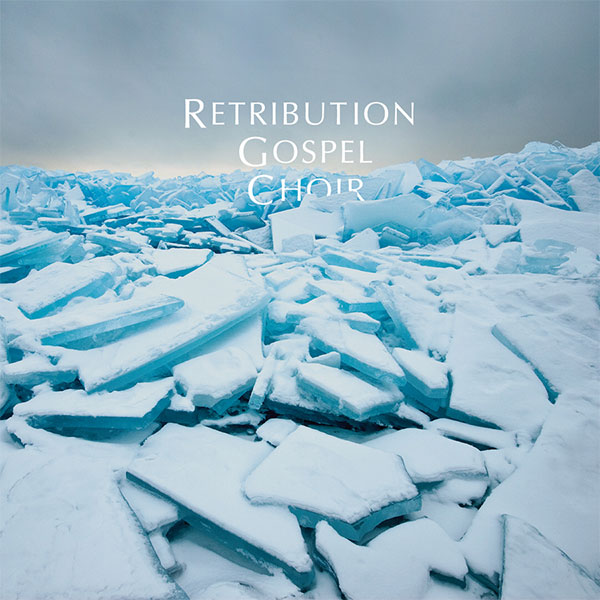Low is one of those bands that most “alternative” music fans will be familiar with; like Can or Eno in the ’70s, or Aphex Twin in more recent times, they are viewed as pioneers of a particular style who have remained masters of what they do. Without being able to name a single song, even the most casual indie fan could describe the trademark Low sound: sparse, minimal arrangements; hushed vocals; painfully slow tempos – despite it being a term the band distances themselves from, they remain the definitive slowcore band. What many people may not realise is that Alan Sparhawk, Low’s singer, guitarist and principle songwriter, is a man of many guises, which should come as a relief to those who prefer rocking out to nodding off. Sparhawk’s love of more upbeat blues has been explored with his side projects, the rootsy Black Eyed Snakes and dub-flavoured jam band Los Besos. Now, with Retribution Gospel Choir, he takes a detour into heavier stoner territory.
Following their excellent (but largely overlooked) self-titled debut, released in 2008 on Mark Kozelek’s Caldo Verde label, this sensibly named follow-up reacquaints Sparhawk with Sub Pop, Low’s home since 2005’s The Great Destroyer. The personnel remain the same – Sparhawk on guitar and vox, with Low cohort Steve Garrington on bass and Eric Pollard on drums and backing vocals. Opening track “Hide It Away” rolls out like thunder, heavy metal stretched out into molten lava. It manages somehow to lurch forward and at the same time groove along smoothly – hard rock exploding in slow motion. Taking cues from both “classic” alt-rock like Built To Spill, and the new school of spaced-out psych, the titular refrain also provides a sing-along chorus catchier than anything Low would ever allow themselves to record. The following “Your Bird” mines slightly darker territory, but maintains the tunefulness and ups the guitar FX; it also carries a slightly folky feel, which is expanded upon a few tracks later with “Poor Man’s Daughter.”
After a brief interlude of galloping garage punk, the Crazy Horse riff-o-rama of “Working Hard” crashes in. Like “Rockin’ In The Free World,” or “Born In The USA,” it teeters perilously on the edge of head-banging, fist-pumping cheese, but only the most cynical listener could resist the title-chanting chorus. The spectre of ‘80s hard rock also floats over “White Wolf,” which unfortunately lacks the gusto of “Working Hard,” and results in the album’s only real misstep.
“Something’s Going to Break” offers perhaps 2’s most experimental moment; for two and a half minutes, we hear what sounds like a band rising to a crescendo in the next room: drums rolling, feedback building – straining, we can just hear the singer, just able to make out the words. Then, in the middle of a verse, as if someone has opened the adjoining door, the sound jumps to full, glorious stereo. In this moment of studio-born transcendence, the “gospel choir” part of the band’s name suddenly makes perfect sense. That track segues into psych-jam “Electric Guitar,” the closest RGC come to real stoner rock, with its endless, repetitive riffing and flaring guitar squall echoing labelmates Comets On Fire. Finally, “Bless Us All” acts as a fitting outro, a brief, folk lullaby swathed in enough dubby FX to earn it a place on a middle-period Floyd record.
Whilst it is the guitar that really thrills, credit is due to the excellent rhythm section, especially Pollard, whose solid beats and nimble fills have a personality all their own; kudos too to production/mixing team Eric Swanson and Matt Beckley for the crunchy sound. However, it is the quality of the songwriting and musicianship here that justifies RGC’s growing reputation as one of the best live bands on the circuit, and establishes them as more than just a side project.

